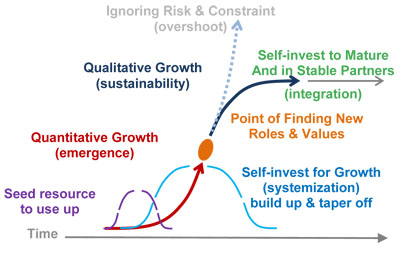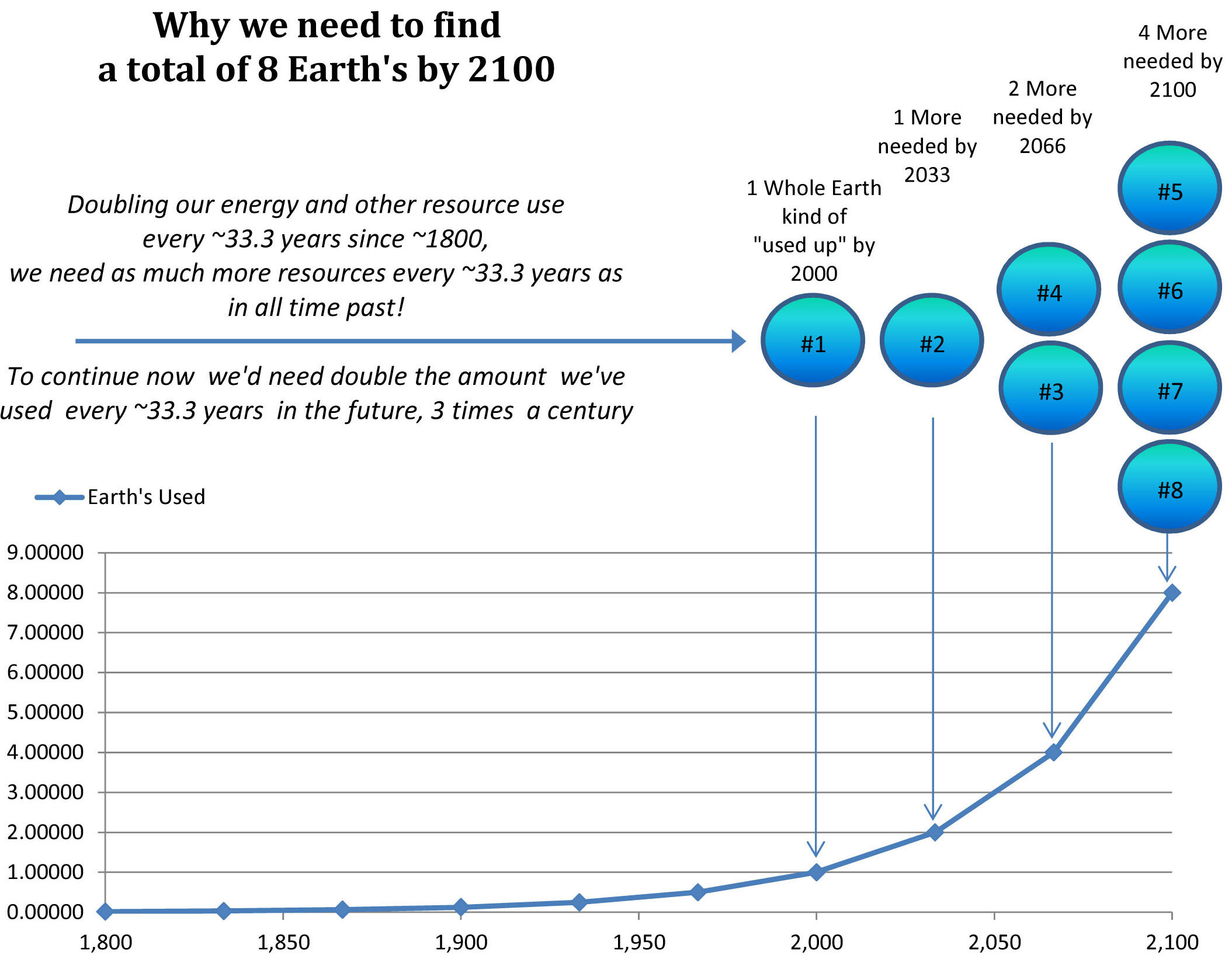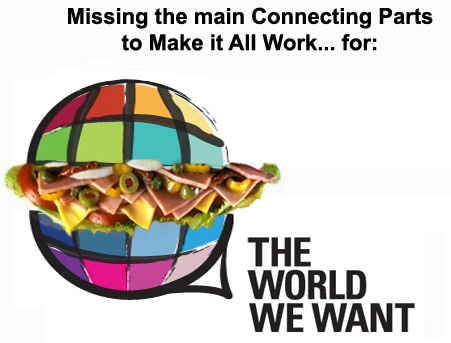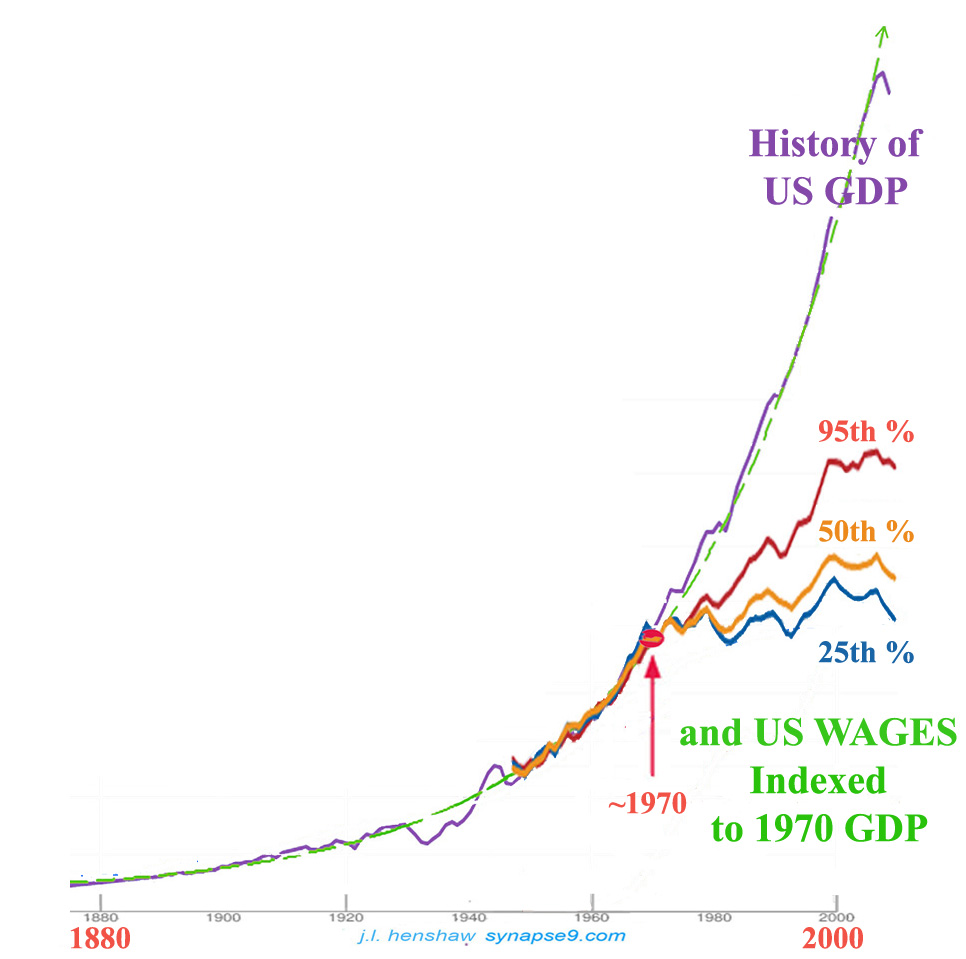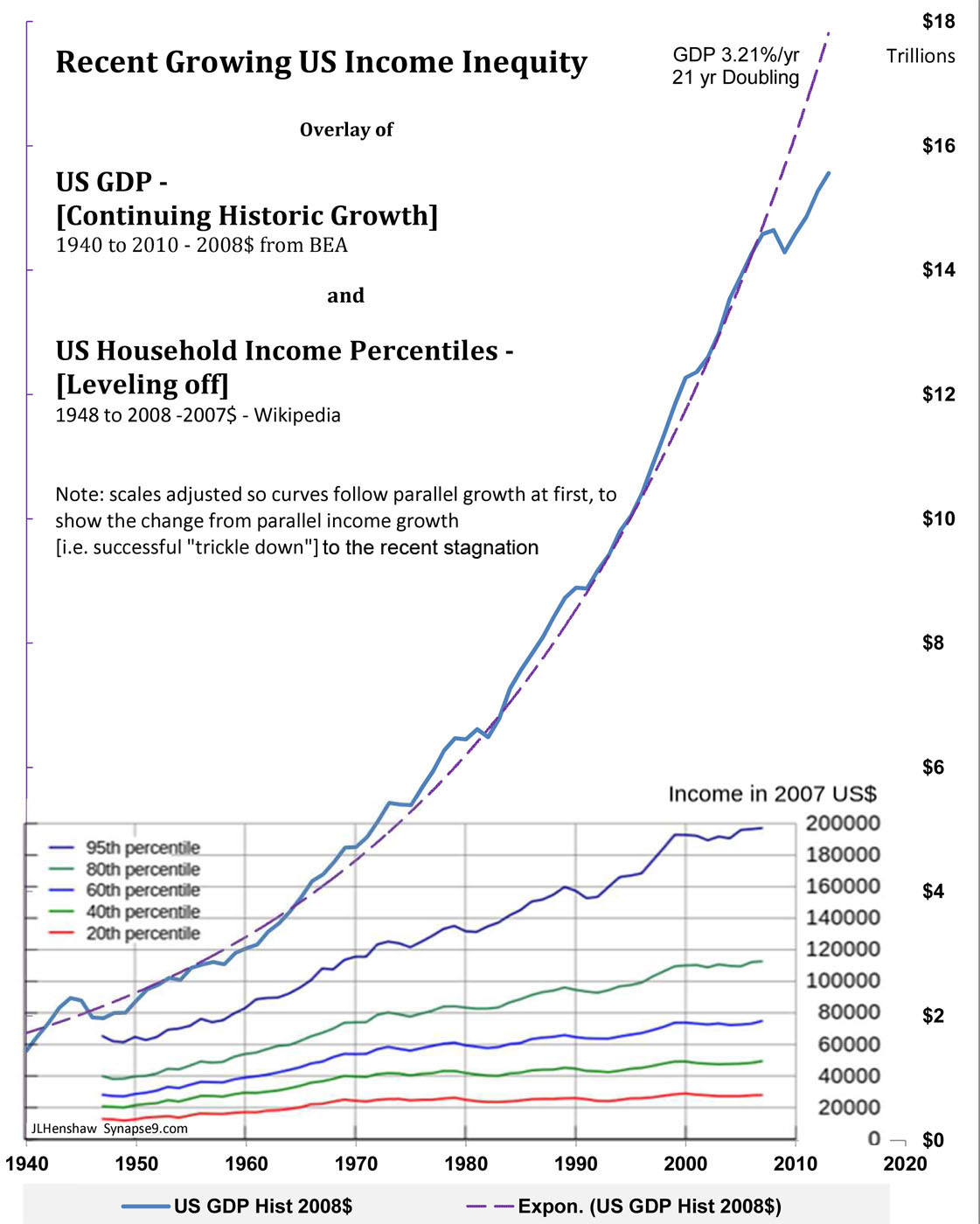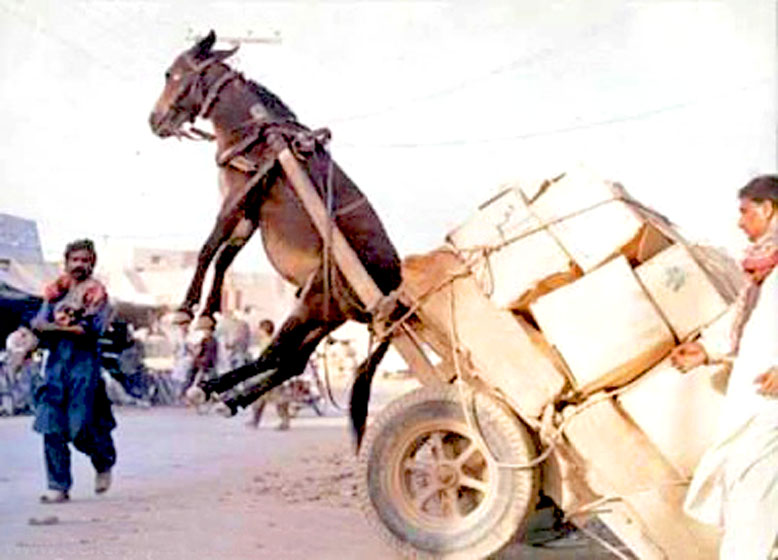A brief report and links to presentations for the Mar 20, 21 Science meeting at the UN
There was an Expert Group Meeting on Science and Sustainable Development Goals at the UN last Wed & Thurs. Most of the presentations would be easy to get the sense of just from the slides. I think worth the trouble. Below are the links and very brief notes on my impressions. There’s also background information on science and the Rio & Agenda 21 issues: Science; Sustainable development goals;
{j} A brief report. The 10 presentations are highly informative. One in particular raises grave concerns. The apparent dominant view in the sustainability sciences from #1 still seems to be that “decoupling” is a realistic objective, if we just “innovate”.
If asking the hard questions suggested by #9 we’d acknowledge “decoupling” is an idea to have ever growing wealth and ever shrinking resource needs as our future plan. We’d also ask whether resource limits are what matters in the end, or whether ever larger and faster change in how we live would become unmanageable anyway…
There also seems to be no direct measure to use for determining if SD goals are achievable or sustainable. My presentation, if I were to make one, would offer the science to fill that gap.
______
1. Decoupling – Natural resource use and environmental impacts from economic growth – Mr. Fischer-Kowalski & Mr. Swilling, International Resource Panel and UNEP
{j} – The fervent dream in some quarters that we might create ever increasing wealth without resources (“decoupling”) is still at odds with the long established and continuing trends. It seems presented here as still a hopeful challenge rather than something probably dangerous to rely on.
– see also Apr30 2014 “Decoupling Puzzle – a partial answer“
2. Early warning of climate tipping points – Mr. Tim Lenton, University of Exeter
{j} – It would be great to hear the full presentation, as the new information I see right at the top of this is quite shocking, that the climate change expected not too far off, is a relatively abrupt shift from one stability range to quite another.
3. From MDGs to SDGs: Key challenges and opportunities – Mr. Dave Griggs, Director, Monash Sustainability Institute, Future Earth
{j} – several nice conceptual diagrams, hopes and fears
4. Future Earth: research for global sustainability – Mr. Stephen Zebiak, Earth Institute, Columbia University
{j} – presents a world science collaborative called “Future Earth”, to guide all parties in making decisions from a scientific basis, so, a ‘multi-stakeholder’ process for science to speak, that I think would succeed and fail as the IPCC did unless it includes the financial and business communities, AND, the three of them use real measures to determine what profitable scenarios are actually sustainable.
5. Strengthening the science-policy interface – Global Sustainable Development Report – United Nations Department of Economic and Social Affairs (UNDESA) Mr. Richard Alexander Roehrl, Division for Sustainable Development
{j} Nice presentation on trends in research, and list of upcoming assessments of progress and potential, but talk of global modeling of system change as the reference indicator,
6. Strong support for SDGs from the scientific community – International Council for Science (ICSU) Mr. Gisbert Glaser, Senior Advisor
{j}j Science strongly supports the funding of the great scientific research being done
7. Sustainability is political – Building pathways in a safe and just space for humanity – Ms. Melissa Leach, Steps Centre
{j} Good selling points for succeeding, but not clearly connected with paths to success as I see the main dilemma and barrier to selling it
8. The role of science and scenario modeling in setting priorities for SDGs – Ms. Claudia Ringler, International Food Policy Research Institute
{j} Focusing on hunger, the benefits of succeeding and the costs of not
9. The role of science and scenario modeling in setting priorities for SDGs? – Youba Sokona
{j} A planning exercise, last three slides ask the hard questions…
10. The role of science and scenario modeling in setting SDG priorities – United Nations Department of Economic and Social Affairs (UNDESA) Mr. Mark Howells, Royal Institute of Technology (Kungliga Tekniska Hogskolan)
{j} Nice display of the complex system modeling approach contemplated, that misses the financial need for compound returns for financial system stability, and so for the system to accelerate outputs to infinity…
___________
Jessie Henshaw 3/23/13


